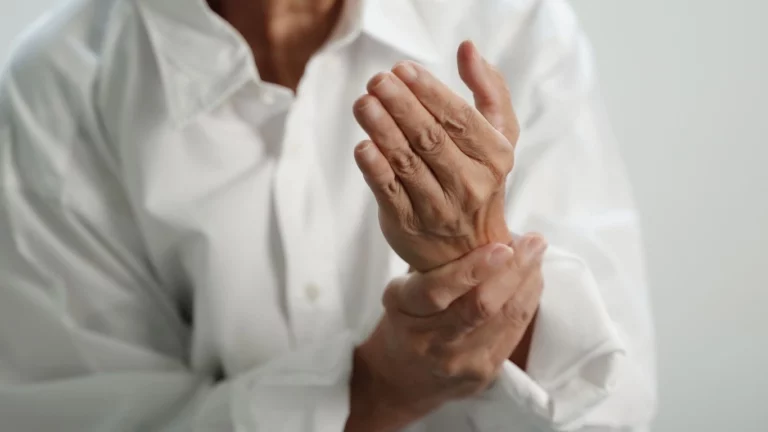GERD Overview: Manage Acid Reflux Naturally and Effectively
It started for me like it does for a lot of people—just a little burning after a big dinner. But what I brushed off as a one-time thing quickly became a nightly ritual: discomfort, restlessness, and a bottle of antacids on the nightstand. Sound familiar? GERD, or gastroesophageal reflux disease, can creep into your life subtly and escalate if left unchecked. So let’s break it down in a way that’s not only practical, but also real-world usable.
Recognizing the Real Signs: It’s Not Just Heartburn

One of the trickiest parts about GERD is how easy it is to dismiss. At first glance, it mimics everyday heartburn. But when it’s chronic, persistent, or happens even without eating spicy food? That’s a red flag.
Common (and Not-So-Common) Symptoms
- Burning sensation in the chest—especially after meals or when lying down
- Regurgitation—a sour or bitter-tasting acid backing up into your throat or mouth
- Persistent dry cough, hoarseness, or the feeling of a lump in your throat
- Difficulty swallowing or chest pain that may mimic heart-related issues
Sometimes, the symptoms aren’t as textbook. I’ve personally had days where my main complaint was a sore throat or a feeling of pressure in the upper chest—nothing that screamed “acid reflux,” but it was all connected. If any of these ring true for you, don’t ignore them.
Learn more about silent reflux symptoms if you’re experiencing throat-related issues without classic heartburn.
What Actually Causes GERD?

While occasional heartburn might be triggered by food, GERD usually has deeper underlying causes. The main player is the lower esophageal sphincter (LES)—that little valve between your stomach and esophagus that should stay closed. When it weakens or relaxes at the wrong time, acid comes up where it doesn’t belong.
Underlying Factors Behind the Scenes
- Obesity: Extra abdominal pressure weakens the LES
- Hiatal hernia: When the upper part of the stomach bulges through the diaphragm
- Delayed stomach emptying: Increases the risk of acid buildup
- Pregnancy: Hormones and pressure can trigger reflux
- Medications: Certain blood pressure or pain meds can relax the LES
If you’re unsure what’s driving your symptoms, check out this guide on unexpected GERD causes that may surprise you.
Daily Triggers That Make GERD Worse

Sometimes it’s not just what’s wrong physiologically, but what we’re doing day-to-day that adds fuel to the fire. I had no idea that my late-night snacking and lounging after meals were a recipe for disaster.
Top Lifestyle and Food Triggers
- Coffee (yes, this one hurts to say)
- Spicy and fried foods
- Citrus fruits and juices
- Carbonated beverages
- Lying down too soon after eating
- Smoking and alcohol
Modifying your routine—even small tweaks—can go a long way. Take a peek at our lifestyle change guide for acid reflux that breaks down what actually works.
Understanding the Differences: GERD, Heartburn, and Acid Reflux

This one’s confusing for a lot of people—and honestly, it took me a while to wrap my head around the difference, too. Here’s a quick breakdown that I wish someone had explained earlier:
What’s What?
- Heartburn: A symptom—burning in the chest, usually after eating
- Acid reflux: The action—acid moving from the stomach to the esophagus
- GERD: The condition—chronic acid reflux that happens regularly and can damage the esophagus over time
If you’re curious about how these terms get misused or mixed up, this comparison guide is super helpful.
How GERD Is Treated (Beyond Just Popping Antacids)

Let me be honest—I lived on over-the-counter antacids for months before realizing I was only masking the issue. A real GERD management plan is a mix of lifestyle, diet, and sometimes medication or medical procedures.
Foundational Management Tips
- Elevate your head while sleeping to prevent nighttime reflux
- Eat smaller, more frequent meals
- Avoid eating 2–3 hours before lying down
- Lose excess weight if applicable
Explore the full treatment options including prescription meds and procedures like LINX or fundoplication. Also, don’t miss our section on effective GERD diet plans to build your food strategy around healing—not just avoiding triggers.
For additional medical accuracy and recommendations, review external insights like those from the National Institute of Diabetes and Digestive and Kidney Diseases (NIDDK) and the Mayo Clinic.
When GERD Becomes Chronic: How to Break the Cycle

There was a point in my journey when I realized I wasn’t just dealing with occasional reflux—it was every day, and it was wearing me down. If you’ve ever felt like GERD is taking over your routine, I get it. That’s what chronic GERD does: it sneaks in and becomes part of your normal… until it starts affecting your quality of life.
Signs It’s Gone From “Mild” to “Manage-Me-Now”
- Symptoms lasting longer than two weeks, despite over-the-counter remedies
- Needing to sleep upright or elevate your bed every night just to avoid flare-ups
- Voice changes, sore throat, or unexplained bad breath
- Difficulty swallowing or a constant sensation of something in your throat
At this stage, it’s not just about comfort—it’s about damage prevention. Chronic GERD can cause complications like Barrett’s esophagus, strictures, and even esophageal cancer if left untreated. That’s why early intervention matters.
Creating a GERD-Friendly Lifestyle (It’s Easier Than You Think)

One thing I always tell friends who are newly diagnosed: don’t panic, pivot. Your life doesn’t have to revolve around avoiding tomatoes and caffeine (although that helps!). It’s about designing a daily routine that keeps your digestion happy and your symptoms quiet.
Simple Lifestyle Adjustments That Pay Off
- Eat smarter – Focus on GERD-friendly foods like oatmeal, bananas, lean proteins, and non-acidic veggies
- Move more – Gentle walks after meals really helped me reduce nighttime symptoms
- Wear loose clothes – Skip tight waistbands that add pressure to your abdomen
- Cut the smoking & reduce alcohol – Both weaken the lower esophageal sphincter (LES)
You might also benefit from keeping a symptom journal. Track what you eat, how you sleep, when symptoms flare up—it’s been a game-changer in uncovering my personal triggers.
Natural Remedies and Complementary Approaches That Can Help

Let me be clear: natural remedies aren’t miracle cures, but they can be powerful allies. When I started experimenting with ginger tea and elevating my head while sleeping, I noticed a genuine difference. These options don’t work for everyone—but they’re low-risk and worth exploring with your doctor’s input.
Popular Natural Options (That Actually Get Talked About)
- Ginger root – Natural anti-inflammatory, can reduce stomach irritation
- Licorice root (DGL) – May coat the esophagus and protect it from acid
- Slippery elm – Used in herbal medicine for soothing mucous membranes
- Melatonin – Surprisingly, this sleep hormone also plays a role in LES strength
Explore these further in our article on natural remedies for acid reflux and bloating. And if you’re considering supplements or herbal therapies, check with a healthcare provider to avoid unwanted interactions with medications.
When You Need More Than Lifestyle: Medication & Medical Interventions

Honestly, I resisted prescription meds for a while. I wanted to believe I could fix it all with diet alone. But when lifestyle changes weren’t enough, a low-dose proton pump inhibitor (PPI) gave me the relief I desperately needed while my body had a chance to heal.
Mainstream Treatment Options
- Antacids – Fast relief, but short-term and only treat the symptoms
- H2 blockers – Reduce acid production (e.g., famotidine)
- Proton Pump Inhibitors (PPIs) – More effective, reduce stomach acid at the source (e.g., omeprazole)
- Surgical solutions – For severe, refractory GERD, procedures like fundoplication or the LINX system may be considered
Want to dig deeper? We cover all the top medication options for GERD and explain when each one makes sense. If meds aren’t enough, here’s a look at GERD surgery choices that can provide long-term relief.
Don’t Ignore the Emotional Toll of GERD

Here’s something no one really talks about: the mental load GERD can bring. Constant discomfort, diet restrictions, sleep disturbances—it can really mess with your mood. I’ve been there, waking up anxious about what I could or couldn’t eat that day.
If you’re dealing with stress-induced flare-ups or emotional burnout, you’re not alone. There’s actually a strong link between GERD and anxiety, and understanding that connection might just help you manage both.
Consider relaxation techniques like breathing exercises, gentle yoga, or even meditation. Many people find symptom relief through stress reduction. Curious? Our guide on GERD and stress management has science-backed techniques you can try today.
For medical grounding, here’s a helpful external overview from the Cleveland Clinic’s GERD resource.
Building a Long-Term GERD Management Plan That Actually Works

Here’s the truth I learned the hard way: GERD doesn’t magically disappear. But once you figure out what works for your body, managing it becomes a lot less overwhelming. My routine today looks nothing like it did before—there’s more structure, more self-awareness, and a lot fewer regrets after dinner.
How to Stay Consistent (Without Going Nuts)
- Stick to a core group of safe meals – Boring? Maybe. But predictable = peace of mind
- Meal prep – I used to “wing it,” but prepped lunches saved me from impulse-trigger foods
- Smart snacking – Check out GERD-friendly snacks for those midday cravings
- Stress check-ins – GERD isn’t just about the gut; your brain’s in on it too
Making your lifestyle revolve around healing rather than just avoiding triggers leads to better results in the long run. And honestly, once I started planning my weeks with my stomach in mind, everything—energy, sleep, even mood—got easier.
Dining Out, Traveling, and Real-Life Scenarios

One of the trickiest parts of living with GERD is stepping out of your home routine. Going to a restaurant or hopping on a plane suddenly becomes a strategic event. I used to dread vacations because I knew it meant two things: no food control and terrible sleep.
Real-Life Tips for GERD-Proof Adventures
- Look up menus beforehand – Highlight safe options, skip acidic sauces or fried items
- Pack snacks – Always carry a few GERD-friendly bars in your bag
- Request modifications – Most restaurants are happy to grill instead of fry, or hold the tomato-based sauce
- Bring your wedge pillow or travel wedge – Seriously, this changed how I sleep on trips
If you’re planning to travel, you’ll want to check out our in-depth tips on GERD management while traveling.
Relapse Moments: What to Do When You Slip

Even with the best plan, things happen. You indulge a little too much, forget to take your meds, or stress throws your stomach off-kilter. I’ve had my fair share of 2 AM acid wakeups. What matters is not perfection—but how quickly you recover.
Quick Recovery Moves
- Go upright – Sit up, don’t lie down. Gravity is your best friend in a flare-up
- Sip warm water or ginger tea – Helps calm the digestive tract without adding acid
- Take a short walk – Just a few minutes of gentle movement can help move acid down
- Write it down – Journal what triggered the episode to avoid it next time
Flare-ups are frustrating, but they’re also a chance to learn. Try not to beat yourself up—just adjust, hydrate, and reset. You’re human.
Answering the FAQs I Wish I’d Known Starting Out

Can GERD Be Cured Permanently?
Not exactly. It can go into remission, and many people manage it so well that it barely affects their lives. But it’s a chronic condition, so long-term habits matter more than quick fixes.
How Do I Know If My GERD Is Getting Worse?
If you’re experiencing new or worsening symptoms—like pain with swallowing, unexplained weight loss, or regurgitation even with treatment—it’s time for an evaluation. Learn more from this guide to severe reflux symptoms.
Is It Safe to Exercise With GERD?
Yes, with a few caveats. Skip the crunches and heavy lifting right after meals. Instead, go for walking, yoga, or swimming. Here’s a full breakdown of GERD-safe exercises and strategies.
Does What I Eat Really Matter?
100% yes. Everyone’s trigger list looks a bit different, but foods are central to how your digestive system functions. Review our GERD diet plan to get started on a stomach-friendly path.
Still confused about what counts as a trigger? This popular breakdown on avoiding GERD triggers might help you find clarity without a food panic.
Living With GERD Doesn’t Mean Giving Up Good Food, Sleep, or Peace of Mind

There was a time I thought living with GERD meant a life of bland meals, awkward sleep setups, and saying no to social events. I was wrong. It just takes intention—and a little guidance. Whether you’re newly diagnosed or have been quietly suffering for years, it’s never too late to take control.
You might want to begin with our GERD Overview Guide for a complete strategy that goes deeper into diagnosis, medication, and personalized lifestyle shifts.
For more medical details, check the NIDDK’s GERD information hub and continue working with your doctor to fine-tune a plan that fits you.

Camellia Wulansari is a dedicated Medical Assistant at a local clinic and a passionate health writer at Healthusias.com. With years of hands-on experience in patient care and a deep interest in preventive medicine, she bridges the gap between clinical knowledge and accessible health information. Camellia specializes in writing about digestive health, chronic conditions like GERD and hypertension, respiratory issues, and autoimmune diseases, aiming to empower readers with practical, easy-to-understand insights. When she’s not assisting patients or writing, you’ll find her enjoying quiet mornings with coffee and a medical journal in hand—or jamming to her favorite metal band, Lamb of God.







